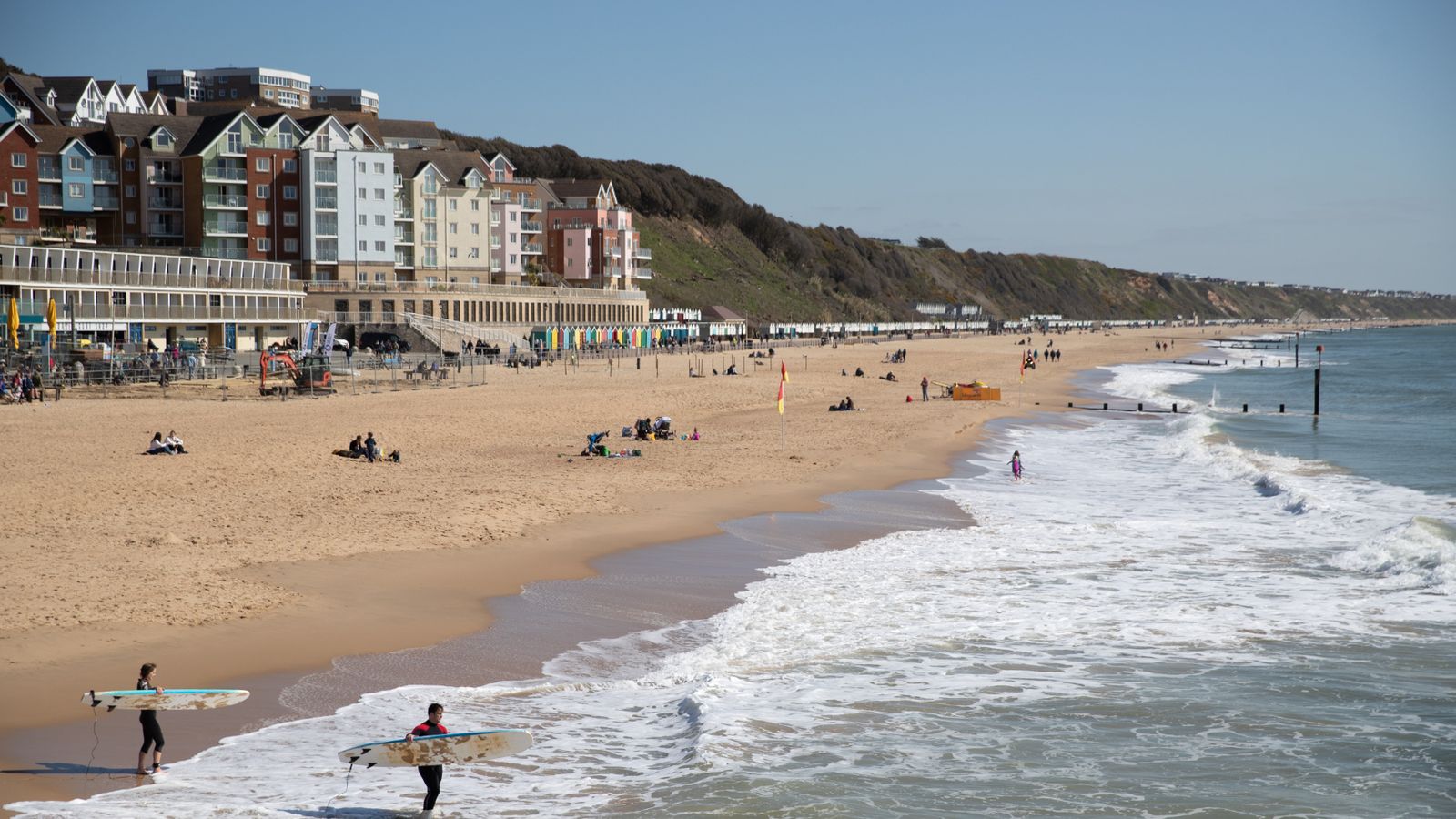A beach in Bournemouth was evacuated after reports of a “large marine animal” in the water.
The RNLI said there was “no formal identification” of the animal seen at Boscombe Beach – but some witnesses on social media claimed it could have been a shark.
Beach visitor Steve Lutwyche said on Twitter: “This is not a drill, I’m on the beach at #Boscombe where the @RNLI have had to red flag the beach due to reported sightings of a shark!”
In a reference to the shark-fighting protagonist of the film Jaws, he added: “Where is Chief Brody when you need him!?”
Another woman tweeted: “Possible shark sighting at Boscombe Beach. Everyone called out of the water.”
The RNLI said lifeguards received “reports of a large marine animal” in the sea.
Beachgoers were asked to evacuate the water “as a precautionary measure” and red flags were put up to warn of a serious hazard in the water.
The beach in Dorset was reopened half an hour later, after lifeguards used jet skis to search the area.
It is not known what species of shark the animal could have been.
The RNLI has advised members of the public to always visit a lifeguarded beach and report any “concerning wildlife” to lifeguards as soon as it is spotted.
This is not a drill, I’m on the beach at #Boscombe where the @RNLI have had to red flag the beach due to reported sightings of a shark! 🦈
(Actually just reopened now. Where is Chief Brody when you need him!?) #bournemouth #shark pic.twitter.com/vwonptdjIQ
There are more than 40 species of sharks living in British waters, according to the Shark Trust, including some of the “fastest, rarest, largest and most highly migratory in the world”.
The charity said no sharks that are potentially dangerous to humans have ever been confirmed in the UK’s waters.
Scientists consider more than 50% of British sharks to be threatened or nearly threatened.
This includes the once common angelshark, or monkfish, which is now rarely seen.
“With so many shark species under threat we think that seeing a shark in British waters should be a cause for celebration,” the Shark Trust said. “Not alarm.”






















